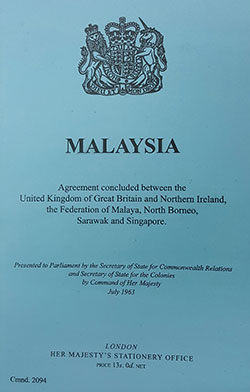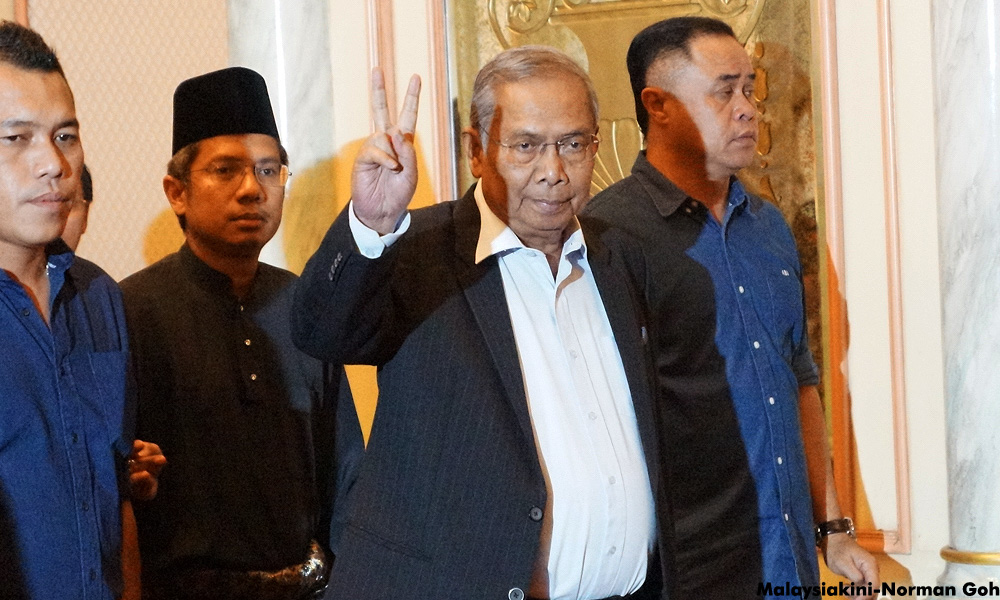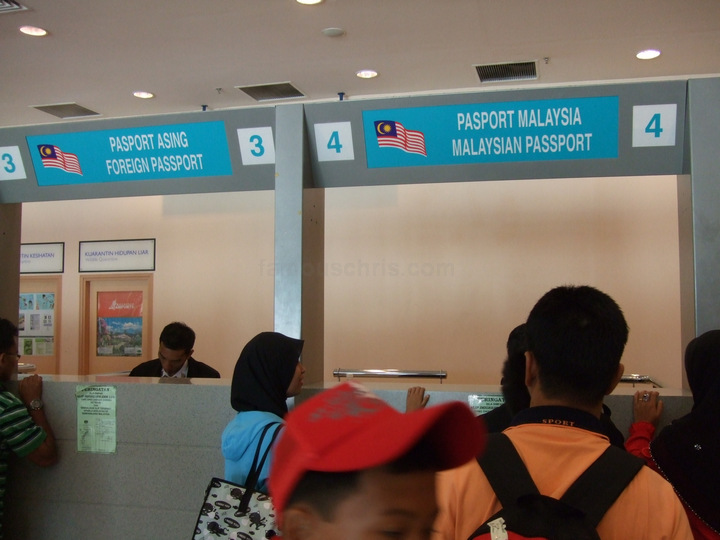STAR:State govt has finally realised Acts not relevant to S'wak
SIBU: State Reform Party
Sarawak ( STAR) says the state goverment has finally awoken to the
realisation that Petroleum Development Act, 1974 (PDA) and the
Territorial Sea Act, 2012 (TSA) are not relevant to Sarawak as thay
have not been approved by the DUN, and therefore void.
Its
president, Lina Soo, said the state government has now admitted that
Sarawak’s rights and territorial integrity had indeed been scrapped
by Acts of Parliament, which contravened Malaysia Agreement 1963,
and by extension, the Sarawak Constitution.“Since the PDA 1974 is unconstitutional in Sarawak, the the state government should immediately instruct Petronas to stop its operations in Sarawak,” she told a press conference here on Saturday.
She said there should not be any new licences issued to Petronas, and if necessary, the state government must also consider court action to safeguard its oil and gas resources.
STAR secretary-general Simon Tiong and committee members were also present at the press conference.
Soo was referring to the recent statemant made by Chief Minister Datuk Patinggi Abang Johari Tun Openg that the Petroleum Development Act 1974 ( PDA) and the Territorial Sea Act 2012 (TSA) are not relevant in Sarawak.
Both are federal laws, and for any federal law to be implemented in Sarawak, the Sarawak State Legislative Assembly ( DUN) has to endorse them. And, since the state DUN had not endorsed both laws, they could not be implemented or supercede the state laws.
Soo thus urged the DUN to pass two resolutions in the May sitting, to firstly, reject PDA 1974, and secondly, to reject TSA 2012, to formalise the state government’s repudiation of both Acts which are detrimental to Sarawak interests and territorial integrity.
Soo was referring to the recent statemant made by Chief Minister Datuk Patinggi Abang Johari Tun Openg that the Petroleum Development Act 1974 ( PDA) and the Territorial Sea Act 2012 (TSA) are not relevant in Sarawak.
Both are federal laws, and for any federal law to be implemented in Sarawak, the Sarawak State Legislative Assembly ( DUN) has to endorse them. And, since the state DUN had not endorsed both laws, they could not be implemented or supercede the state laws.
Soo thus urged the DUN to pass two resolutions in the May sitting, to firstly, reject PDA 1974, and secondly, to reject TSA 2012, to formalise the state government’s repudiation of both Acts which are detrimental to Sarawak interests and territorial integrity.
She
also said that prime minister, if he is sincere to return Sarawak’s
rights, should allow the provison to be attached to PDA 1974 and TSA
2012 with the clause
‘This Act shall not apply to Sarawak and Sabah’.
“We are not powerless. We have the MA63 to safeguard our national interests, and we have the laws on our side, including our Oil Mining Ordinance and Gas Distribution Ordinance,” she added.
‘This Act shall not apply to Sarawak and Sabah’.
“We are not powerless. We have the MA63 to safeguard our national interests, and we have the laws on our side, including our Oil Mining Ordinance and Gas Distribution Ordinance,” she added.
Soo
said the announcement of the chief minister rings hollow if the
state government does not follow up the constitutional process to
formalise the restoration of our rights, resources and powers which
have been taken away.
“Who then will issue the mining licence to Petros, is it Petronas under the PM or the Sarawak government under our CM,” she asked.
Soo also questioned response from DAP and PKR on their negativity and disinterest to fight for Sarawak rights pertaining to the issue of ownership of oil and gas found in our territory.
“Who then will issue the mining licence to Petros, is it Petronas under the PM or the Sarawak government under our CM,” she asked.
Soo also questioned response from DAP and PKR on their negativity and disinterest to fight for Sarawak rights pertaining to the issue of ownership of oil and gas found in our territory.
She
said it’s strange that Pakatan Sarawak should submit to Malaya’s
hegemony by propagating our oil and gas as belonging to the
federal government by recommending 20 per cent in the new deal,
should they come into power.
“Why not 100 per cent in recognition of Sarawak’s ownership of our minerals, and then we can negotiable from there.”
Soo said no MPs had on record objected to the passing of TSA 2012 in Parliament in 2012.
STAR believes that the PDA 1974 is unconstitutional, which has wrongfully assumed ownership of our oil and gas.
“ STAR fights for 100 per cent control and ownership of our resources and political boundaries including our continental shelf and waters.”
Soo said this unconstitutional process of passing through Acts of Parliament without acquiring consent from Sarawak DUN must cease-and- desist.
“The state government and the opposition ought to be vigilant and serve the people with due diligence and deep commitment to safeguard what belongs to Sarawak.”
“Why not 100 per cent in recognition of Sarawak’s ownership of our minerals, and then we can negotiable from there.”
Soo said no MPs had on record objected to the passing of TSA 2012 in Parliament in 2012.
STAR believes that the PDA 1974 is unconstitutional, which has wrongfully assumed ownership of our oil and gas.
“ STAR fights for 100 per cent control and ownership of our resources and political boundaries including our continental shelf and waters.”
Soo said this unconstitutional process of passing through Acts of Parliament without acquiring consent from Sarawak DUN must cease-and- desist.
“The state government and the opposition ought to be vigilant and serve the people with due diligence and deep commitment to safeguard what belongs to Sarawak.”





